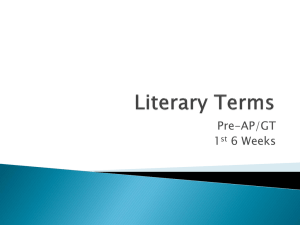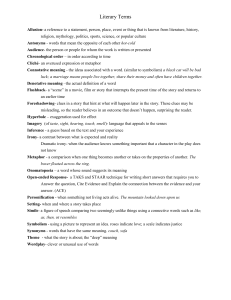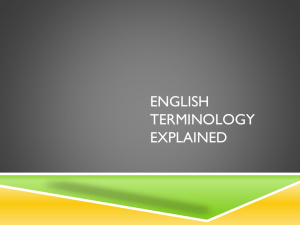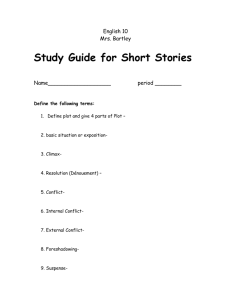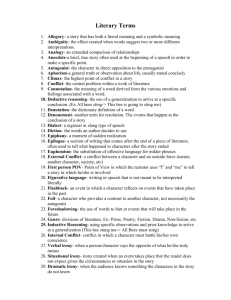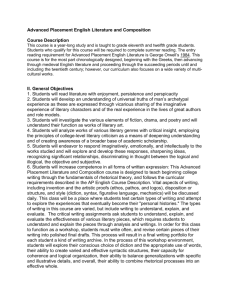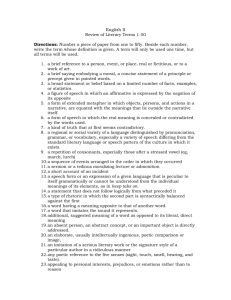Unit Vocabulary
advertisement
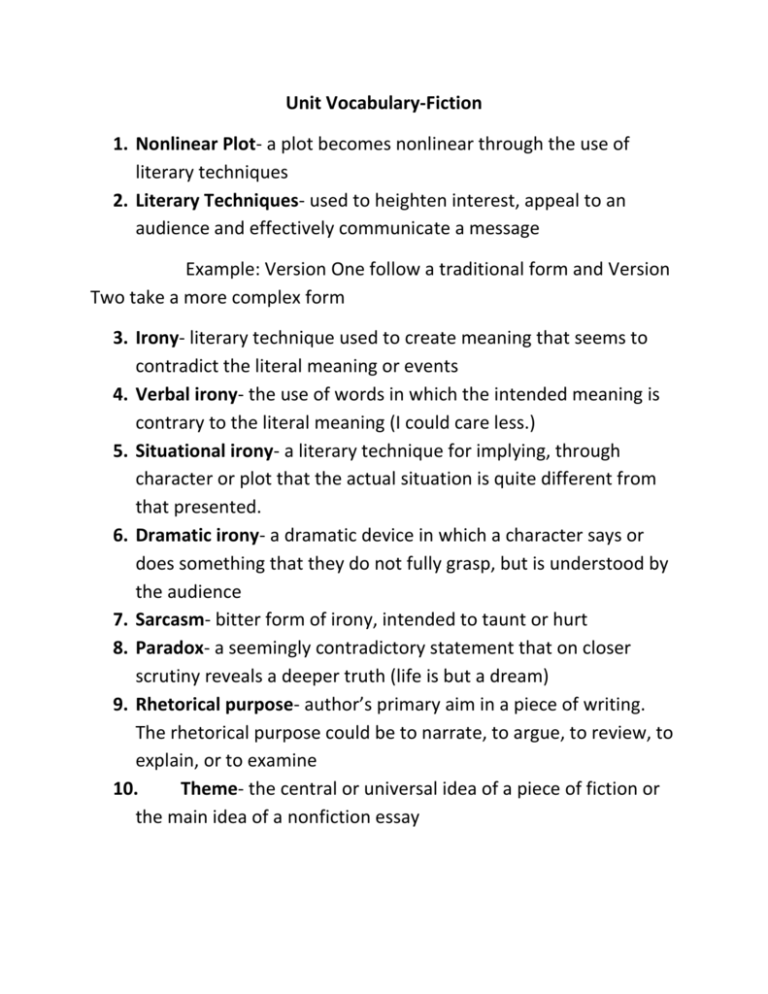
Unit Vocabulary-Fiction 1. Nonlinear Plot- a plot becomes nonlinear through the use of literary techniques 2. Literary Techniques- used to heighten interest, appeal to an audience and effectively communicate a message Example: Version One follow a traditional form and Version Two take a more complex form 3. Irony- literary technique used to create meaning that seems to contradict the literal meaning or events 4. Verbal irony- the use of words in which the intended meaning is contrary to the literal meaning (I could care less.) 5. Situational irony- a literary technique for implying, through character or plot that the actual situation is quite different from that presented. 6. Dramatic irony- a dramatic device in which a character says or does something that they do not fully grasp, but is understood by the audience 7. Sarcasm- bitter form of irony, intended to taunt or hurt 8. Paradox- a seemingly contradictory statement that on closer scrutiny reveals a deeper truth (life is but a dream) 9. Rhetorical purpose- author’s primary aim in a piece of writing. The rhetorical purpose could be to narrate, to argue, to review, to explain, or to examine 10. Theme- the central or universal idea of a piece of fiction or the main idea of a nonfiction essay Exit Ticket: Analyze the character development and point of view of version two. How does it contribute to the author’s message?
